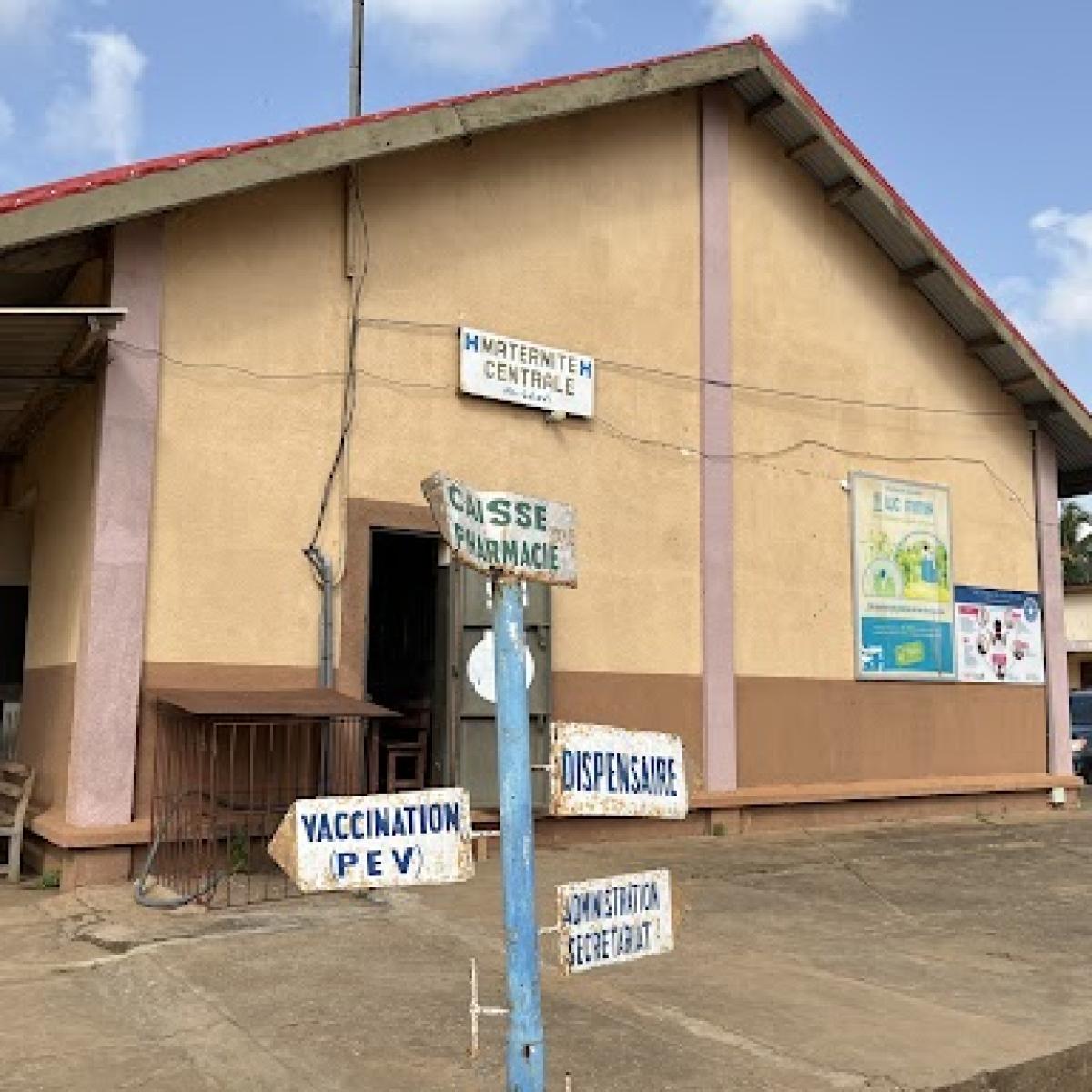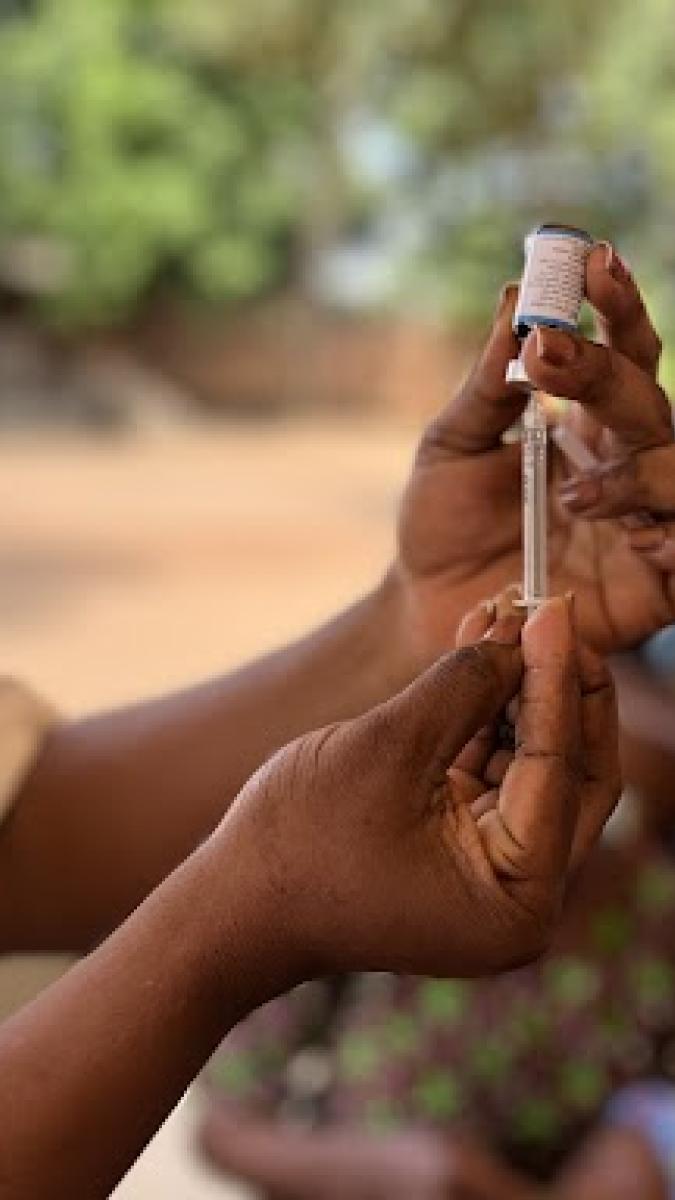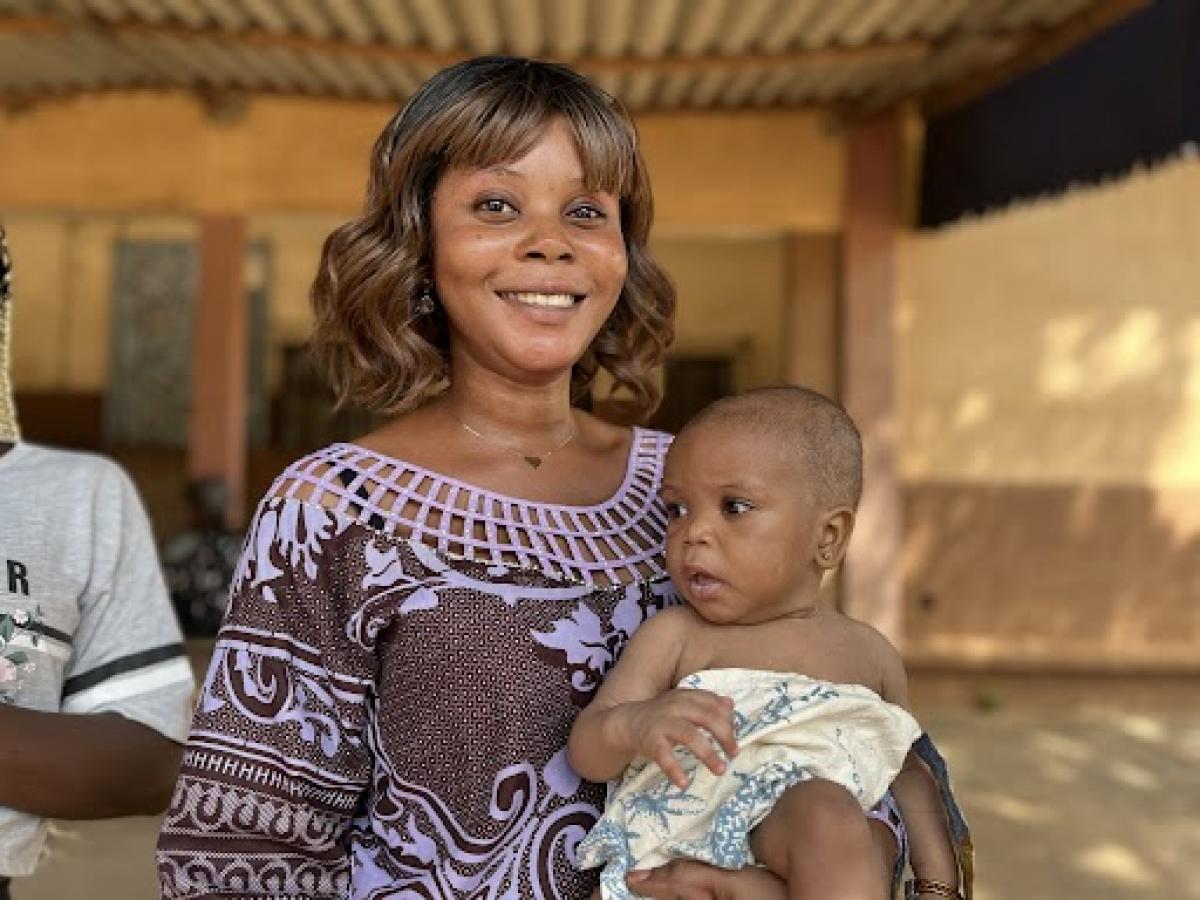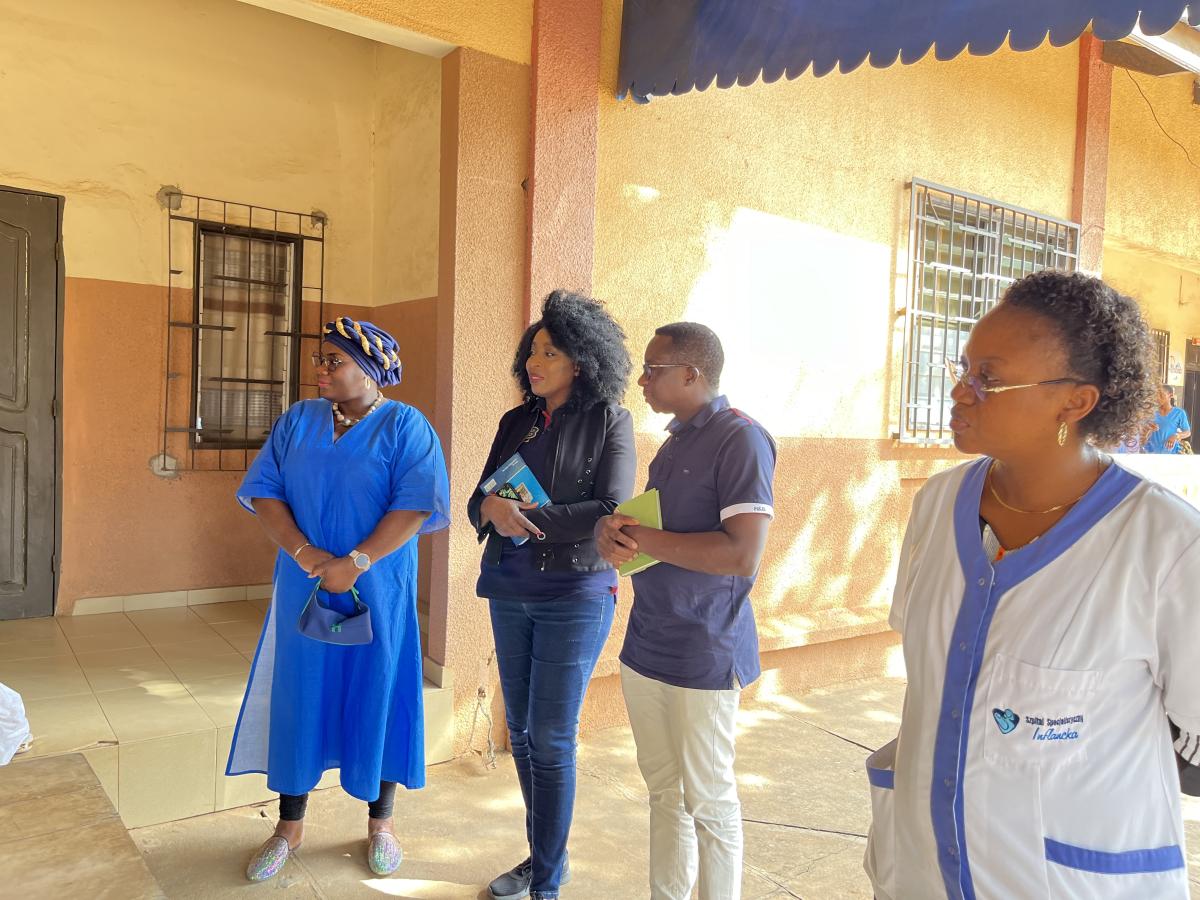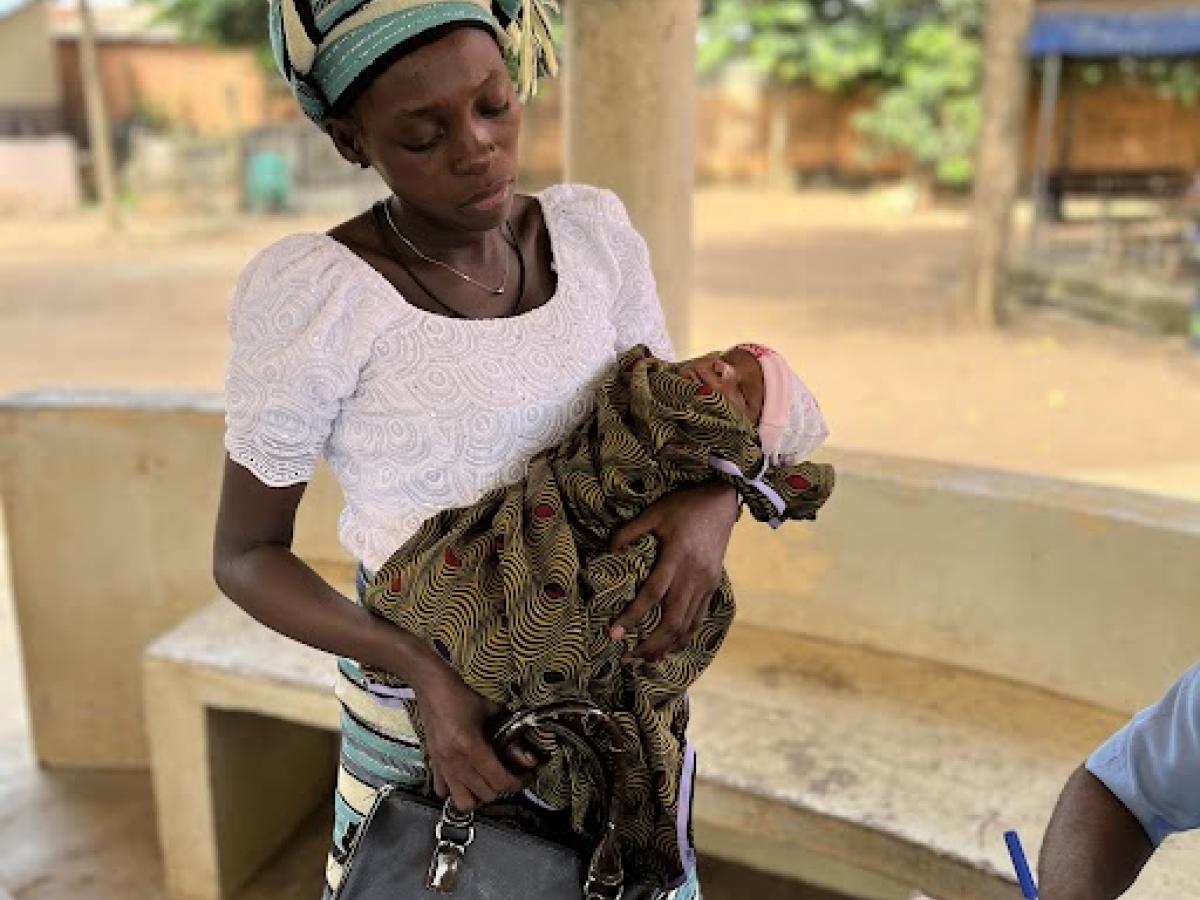In the heart of the Abomey-Calavi community stands the Centre de Santé de Calavi Kpota, a bustling hub of medical activity, and a pivotal part of the journey of newborn immunization. Its significance is set to increase with the recent launch of the Momentum Routine Immunization Transformation and Equality (M-RITE) project by USAID/Benin. Although M-RITE has not yet begun its direct work with the clinic, the project's initiation, including a visit from the USAID Global Health Bureau's Immunization Technical Manager, Dr. Folake Olayinka, is a step towards understanding and enhancing the current state of immunization services in Benin.
The day at the clinic starts early, with healthcare workers preparing for the influx of young families. A sign, directing patients to the vaccination unit, guides parents and their newborns to the immunization services, and tucked away from the sun, healthcare workers educate and reassure anxious parents about the importance of these early interventions in their child’s life.
In the heart of the clinic, nurses prepare for the day's appointments. Their hands, steady and experienced, handle vaccines with utmost care, ensuring each dose is ready for its crucial role. This meticulousness reflects the clinic's unwavering dedication to maintaining high standards of healthcare.
The waiting area is a mosaic of emotions. Parents cradle their babies, their faces a mix of concern, hope, and love, capturing the profound responsibility of parenthood.
One mother shares, "I am thankful that I can immunize my child for free. If this were a paid service, I fear that I might not have been able to afford it."
The core of the clinic's work unfolds in the gentle hands of healthcare workers. Each vaccination, a blend of precision and care, marks a milestone in a child's health journey. After the vaccine is given, parents wait their turn for an important follow-up session with a doctor. This session serves as a critical point for monitoring and examining the baby more closely. It also offers parents a chance to ask questions and discuss their baby's growth progress with the healthcare professional.
During these interactions, many mothers shared their initial fears about vaccinating their children. However, they ultimately expressed that after being sensitized to the importance of rigorously following the immunization schedule by the healthcare professionals, they felt encouraged and reassured. Others spoke about the care with which the healthcare professionals handled their babies, treating them as their own, which further instilled a sense of trust and comfort.
Despite the commendable vaccination atmosphere at the Centre de Santé de Calavi Kpota, broader challenges in Benin's public health landscape remain. Notably, the zero-doses analysis report, based on administrative data from 2020 to 2022, indicates that over 100,000 children in the country have not yet received vaccinations. This includes significant numbers in regions such as Borgou (29,341), Plateau (24,265), Couffo (18,483), and Atlantique (17,953). Recognizing this gap, USAID Benin is proactively collaborating with the Beninese government to expand outreach and immunization services, targeting these under-vaccinated and zero-dose children.
The launch of the Momentum Routine Immunization Transformation and Equality (M-RITE) project on November 30, 2023, marks a significant stride in this direction. The inauguration, attended by USAID's Country Representative in Benin, authorities from the Ministry of Health, and the USAID Global Health Bureau's immunization technical manager, underscores the project's importance. M-RITE, covering four departments including where the Abomey Calavi health center is located, aims to bolster vaccination efforts in these critical regions.
The M-RITE project, funded by USAID/Benin, signifies a revitalized commitment to routine immunization support in the country. This initiative is crucial in the battle against preventable diseases that pose lifelong health risks to children. M-RITE's goal is not just to end preventable child deaths but also to extend technical assistance for reaching unvaccinated and under-vaccinated children, thereby promoting equitable immunization.
Focusing on four key departments in southern Benin — Couffo, Plateau, Mono, and Atlantique — M-RITE aims to increase vaccine access and demand. The project will enhance the capacity for sustaining high immunization coverage rates and will bolster logistics and supply chain management. This includes refining data collection, reporting, and utilization processes to ensure a consistent vaccine supply at peripheral levels.
Additionally, M-RITE is set to strengthen data management processes, facilitating routine use and informed decision-making at both national and subnational levels. The project will also establish robust systems for tracking progress towards immunization targets.
In its implementation, M-RITE will work in concert with relevant departments of the Ministry of Health (MOH) and will complement the efforts of other USAID implementing partners. This collaboration extends to technical support mechanisms and partnerships with global health entities like the World Health Organization (WHO), UNICEF, Gavi, and others engaged in immunization initiatives in Benin.
While the Centre de Santé de Calavi Kpota exemplifies the success of well-implemented immunization programs, the broader landscape in Benin illustrates the ongoing challenges and the urgent need for concerted efforts like M-RITE. It's a call to action, reminding us of the work still needed to ensure every child receives the life-saving vaccines they deserve.
As the day at the clinic winds down, the story of the Centre de Santé de Calavi Kpota interweaves with the larger narrative of public health in Benin. This clinic, supported by the M-RITE project, not only stands as a testament to the community's commitment to a healthy next generation but also symbolizes the collaborative effort needed to address public health challenges on a national scale.
*Note: All photographs were taken with the consent of individuals involved, respecting their privacy and the sensitive nature of healthcare.*
